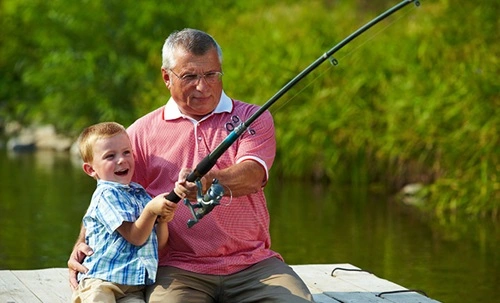No, it is not illegal to prohibit your child from going fishing. Parents or guardians have the legal right to make decisions regarding their children’s activities, including fishing. However, broader discussions about parental authority, children’s rights, and the importance of outdoor recreational activities often arise in this context.
Understanding Parental Authority and Fishing
- Parental Rights in the U.S.
- In the United States, parents or legal guardians have significant authority over decisions affecting their children, including how they spend their leisure time.
- Fishing, while a popular recreational activity, is not considered a legal right that children are entitled to without parental permission.
- Fishing and Legal Implications
- There are no federal or state laws mandating that parents allow their children to engage in fishing.
- A child being denied the opportunity to fish would not constitute neglect or abuse under the law.
The Role of Fishing in Childhood Development
- Benefits of Fishing
- Fishing teaches patience, responsibility, and respect for the environment. It also provides an opportunity for children to spend time outdoors and bond with family or friends.
- Recreational Rights of Children
- While children have a general right to recreation under the United Nations Convention on the Rights of the Child (UNCRC), this does not override parental authority in the U.S., which has not fully ratified the UNCRC.
Legal Scenarios Related to Fishing and Children
- Parental Disputes
- In cases of divorced or separated parents, disagreements about recreational activities, such as fishing, could arise.
- Family courts may address these disputes if one parent believes denying the activity is harmful to the child’s well-being, though such cases are rare.
- Community and School Programs
- Some schools or community groups offer fishing programs for children. Parents generally have the right to consent or refuse their child’s participation in such activities.
- Cultural or Religious Considerations
- In some cases, cultural or religious beliefs may lead parents to restrict activities like fishing. These restrictions are legally permissible as long as they do not harm the child’s welfare.
Encouraging Positive Family Dynamics Around Fishing
- Open Communication
- Discussing the benefits of fishing as a family activity can help parents and children reach a mutual understanding.
- Balancing Safety Concerns
- Parents may have legitimate safety concerns about allowing their child to go fishing. Addressing these concerns with proper safety measures, such as adult supervision, can make fishing a viable option.
- Educational Opportunities
- Fishing programs offered by schools or parks can help parents view the activity as more than just leisure, emphasizing its educational and developmental benefits.
Common FAQs
Q1. Can my child legally go fishing without my permission?
Ans: No, as a minor, a child typically needs parental or guardian consent to engage in activities like fishing, especially if it involves traveling or using potentially hazardous equipment.
Q2. Is it child neglect to stop a child from fishing?
Ans: No, preventing a child from fishing is not considered neglect or abuse under the law, as it is a recreational activity and not a basic necessity.
Q3. Are there any laws that give children the right to fish?
Ans: No specific laws in the U.S. grant children the right to fish independently of parental consent.
Q4. Can one parent allow fishing if the other parent disagrees?
Ans: In cases of joint custody, parents must agree on extracurricular activities like fishing. Disputes may be addressed in family court.
Q5. Are there safety regulations for children who fish?
Ans: Yes, safety regulations vary by state and may require adult supervision for children under a certain age, as well as proper fishing licenses and safety gear.
Conclusion
While fishing can be an enriching experience for children, it remains at the discretion of parents or guardians to allow or deny their participation. No laws in the United States make it illegal for a parent to prevent their child from fishing. Instead, the decision often revolves around family dynamics, safety concerns, and cultural or personal beliefs. Open communication and understanding can help families navigate such decisions positively.


